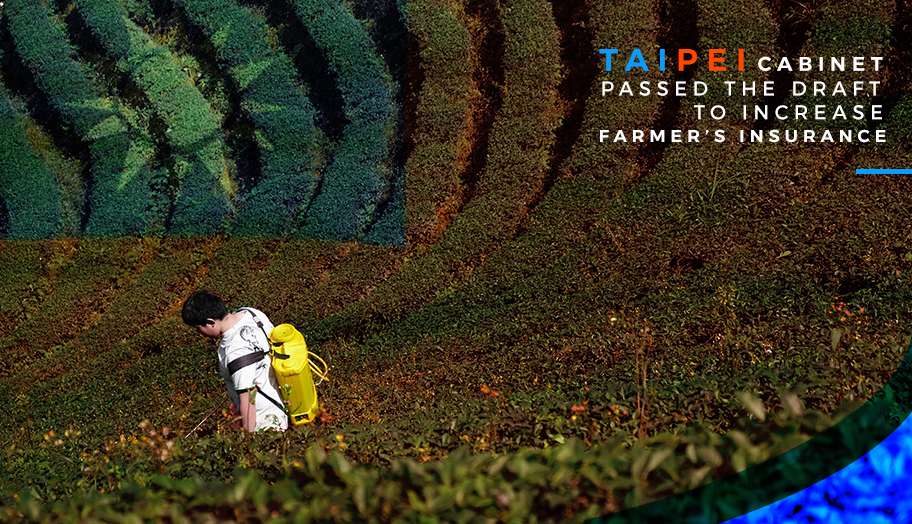The Executive Yuan committee in Taiwan recently passed the draft to help boost the farmers’ insurance. This proposed bill intends to increase the insurance coverage of farmers in the country, covering damages for both crops and livestock.
According to Taipei Times, the average damages incurred by these growers in the country amounts to an average of NT$10 billion ($321.78 million) each year.
However, in a statement by deputy director Lee Tsung-yung from the Council of Agriculture, the smallholders only receive a combined compensation of NT$310 million from the government, reports Focus Taiwan. This only amounts to 25% of losses being covered.

Better Coverage
Under this recently passed draft, the Executive Yuan allows farmers to receive better compensation and coverage. This coverage includes reparations for damages due to natural disasters, epidemics, and pests. The 30-article draft also allows farming individuals to gain access to policies that cover their agricultural, fishery, forestry, and livestock goods state Focus Taiwan.
In an interview with Taipei Times, Premier Su Tseng-chang notes that “given that natural disasters are frequent in Taiwan, the act would provide an important legal basis on which to build a better system to assist farmers when they face crop or livestock losses.”
Based on the article released by Taipei Times, individuals would be given payments in different ways. One, insurers would provide compensation towards farming entities. Two, certified government associations would reimburse payments to these agriculturalists.
Should the bill be passed, the Executive Yuan of Taiwan would reportedly set up a fund that would “build an insurance database, train insurance professionals, help farmers with risk management and provide education programs for farmers.”
Wider Reach
To urge individuals to avail of the new program, the government intends to should up to 50% of the insurance premiums. This would exclude insurance policies taken out in response to government requirements, reveals Focus Taiwan.













